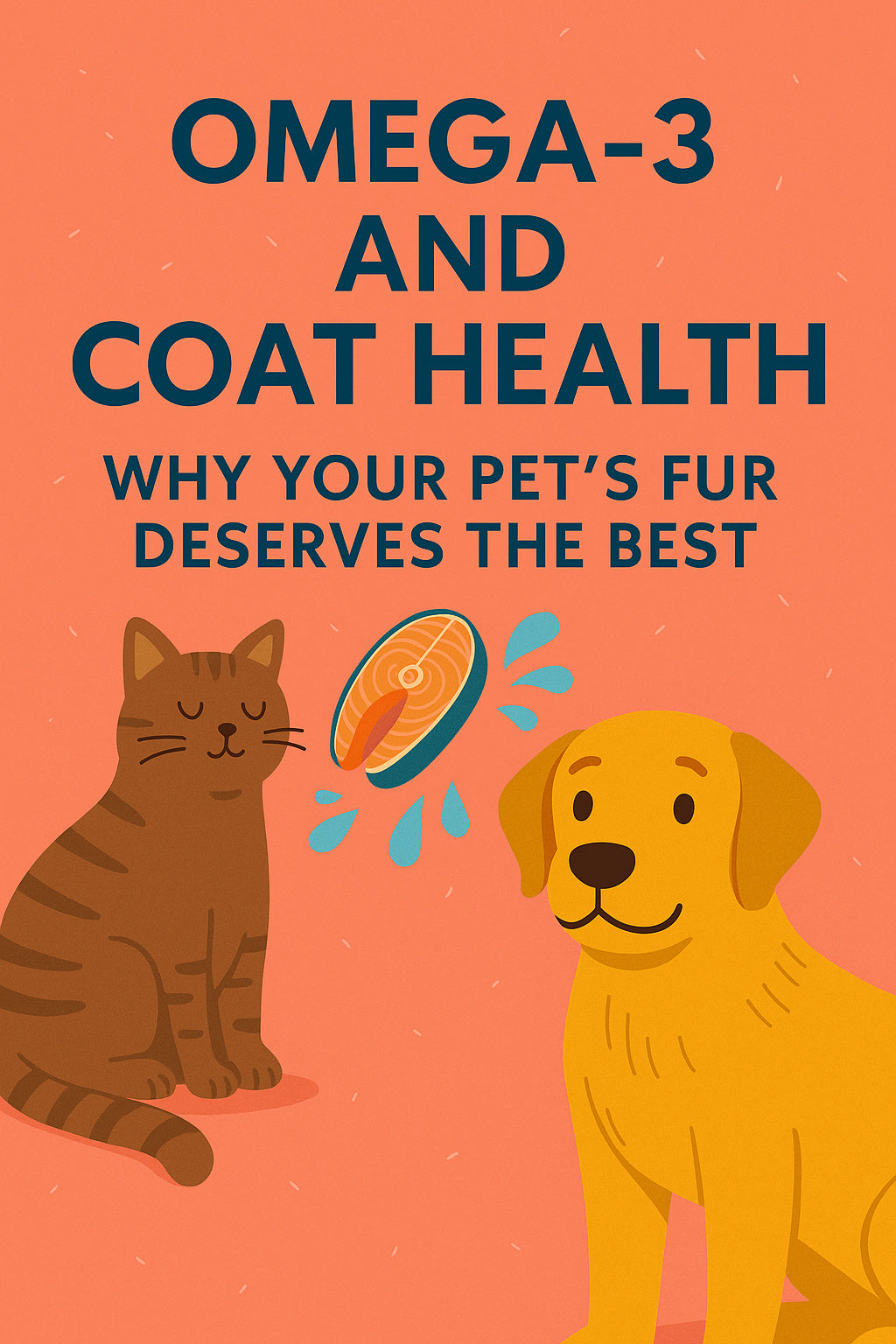
Omega-3 and Coat Health: Why Your Pet’s Fur Deserves the Best
Your pet’s coat is more than just a pretty layer — it’s a reflection of their internal health. Whether you're brushing your cat or running your fingers through your dog's fur, you may notice dry patches, dandruff, or excessive shedding. One essential nutrient that could make all the difference? Omega-3 fatty acids.
Let’s explore how Omega-3 supports your pet’s coat, skin, and overall vitality — and why you should consider including it in their daily diet.
✨ What Are Omega-3 Fatty Acids?
Omega-3s are essential fats, meaning your pet’s body can’t produce them naturally. They must be consumed through diet or supplements. There are three main types:
- ALA (Alpha-linolenic acid) – Found in flaxseed and plant oils
- EPA (Eicosapentaenoic acid) – Found in fish oil
- DHA (Docosahexaenoic acid) – Also from marine sources
While ALA is helpful, EPA and DHA are more potent in supporting coat health and reducing inflammation.
🐾 How Omega-3s Improve Coat & Skin
- Reduces Shedding: Pets with Omega-3 in their diets often shed less.
- Prevents Dry Skin: Helps nourish skin from within, reducing flakiness.
- Promotes Shine: Healthy Omega-3 levels make your pet’s coat softer and glossier.
- Helps With Allergies: Omega-3s have natural anti-inflammatory properties, soothing itchy skin and reducing allergic reactions.
💡 Signs Your Pet May Need Omega-3
- Dull or brittle coat
- Itchy, flaky, or dry skin
- Excessive shedding
- Hot spots or skin irritation
If you notice these signs, consult your vet. A balanced diet with Omega-3 might help improve symptoms within weeks.
🍽️ How to Add Omega-3 to Your Pet’s Diet
- Fish-based pet foods (look for salmon, sardine, or herring)
- Fish oil supplements (in capsules or liquid form)
- Natural snacks with flaxseed or algae oils
Make sure to choose high-quality products and follow dosage instructions based on weight and species.
⚠️ Caution: Don’t Overdo It
Too much Omega-3 can lead to digestive upset or interfere with clotting. Always start slowly and consult your veterinarian before adding supplements — especially for senior pets or those with chronic conditions.
📚 Related Articles
📌 Conclusion
Omega-3 isn’t just another supplement — it’s a crucial component of your pet’s health. From improved coat shine to reduced itchiness, the benefits are visible and lasting. For dog and cat owners across the US and Europe, choosing the right diet and supplements is the first step to a happier, healthier pet.
🦴 Want more nutrition tips? Check out our Pet Food & Nutrition Blog.




